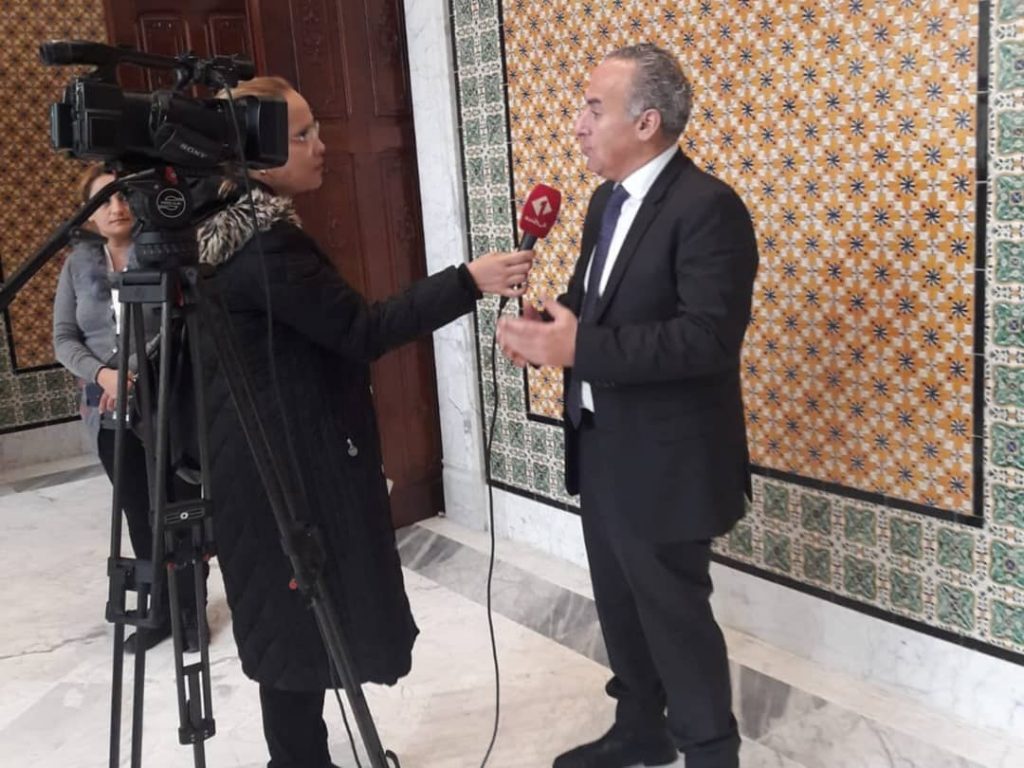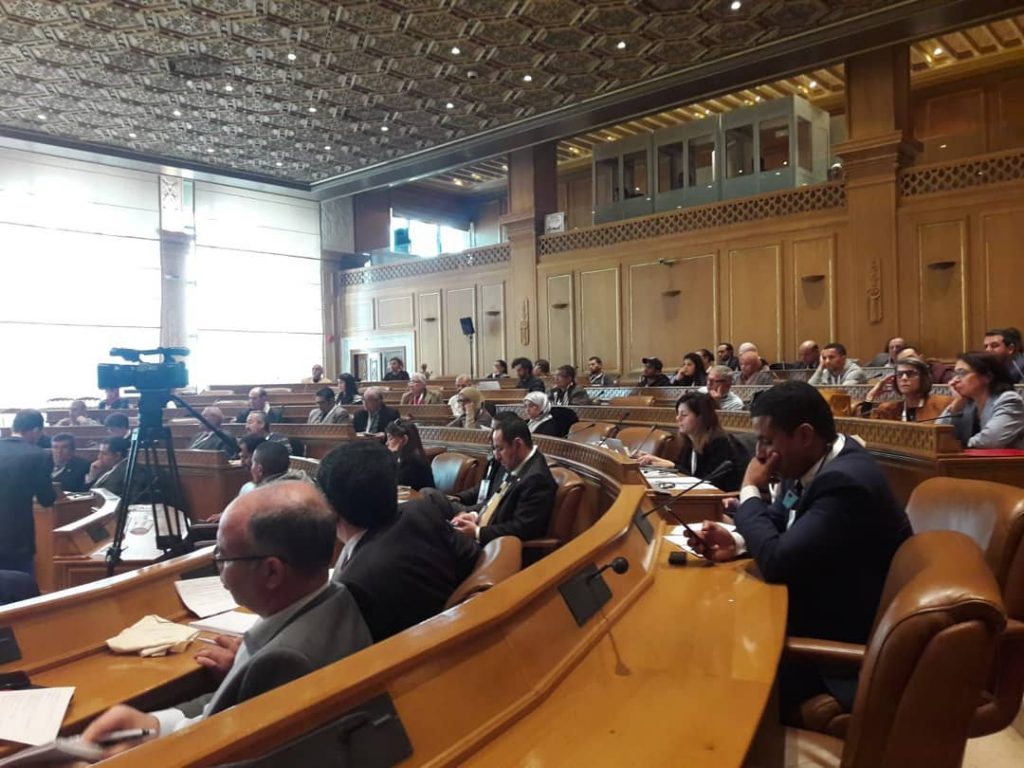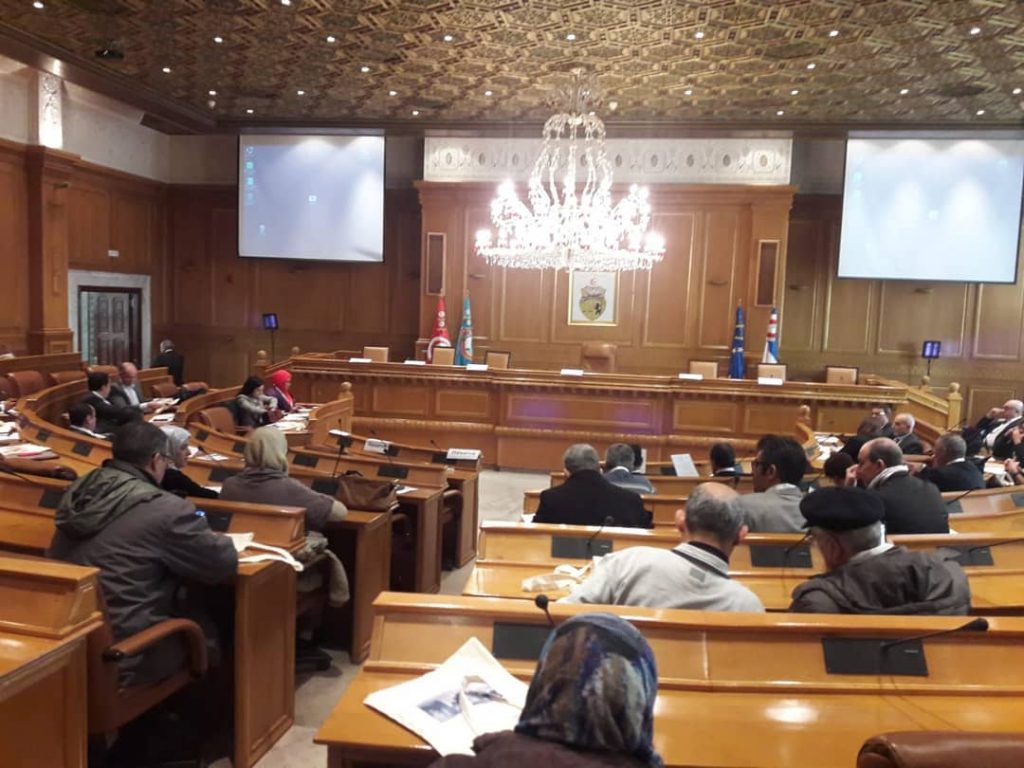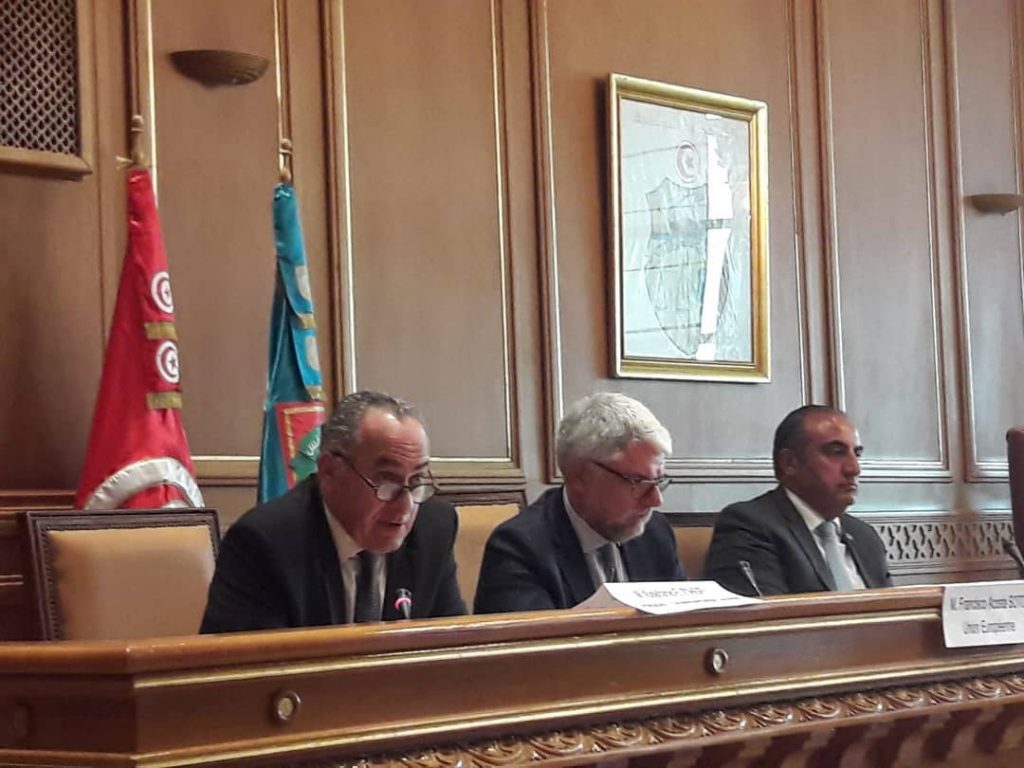The President of EMUNI University Prof.Dr. Abdelhamid El-Zoheiry, participated at the “2nd Euro- Mediterranean Forum on preventing youth radicalization” as the keynote speaker on the topic “Prevention of youth radicalization in the Euro-Med : a collective responsibility”
The President of EMUNI University Prof.Dr. Abdelhamid El-Zoheiry, participated at the “2nd Euro- Mediterranean Forum on preventing youth radicalization” as the keynote speaker on the topic “Prevention of youth radicalization in the Euro-Med : a collective responsibility”
The forum took place in Tunis, Tunisia on 12 December 2019, organized by Euromed Cities Network. Below we are presenting the full keynote speech of our President.
Preventing Radicalisation of Youth in the Euro-Med
A collective responsibility
A. Hamid El-Zoheiry
President, Euro-Mediterranean University
Tunis, 12 December 2019
“The Mediterranean has the colour of mackerel, changeable I mean. You don’t always know if it is green or violet, you can’t even say it’s blue, because the next moment the changing reflection has taken on a tint of rose or grey”. These are not my words, but those of the famous Dutch Painter Vincent Van Gogh.
He was most probably describing the sea itself, but this statement could also be applied to the people and cultures bordering the Mediterranean Sea. This region, which has seen the rise and fall of very first ancient civilisations, Ancient Egyptian, Mesopotamia, Greek, Roman, Phoenician and others. It is the region that gave birth to religions and great inventions, like writing architecture, law, and medicine.
And the region that today faces many challenges and untapped potential. One of the most prominent challenges confronting our region today is Youth radicalisation and violent extremism. The drivers for radicalisation and violent extremism are many, among which are socioeconomic factors, like poverty and ignorance, but also socio-political factors as the identity crisis, marginalisation and lack of purpose and absence of the sense of belonging that youth have been facing, particularly in the south of the Mediterranean and that had led to their revolt.
We also have to realise the role that unemployment or under employment plays, populism that breeds intolerance and rejection of others’ ideas, beliefs and cultures and the detrimental effect of lack of proper education, including informal education and intercultural citizenship education.
If we are to prevent radicalisation of youth across the Mediterranean, we have to act collectively, addressing its drivers and root causes. And let me be clear, this is not a problem of the south Med countries or of one religion or one culture, it is a shared challenge requiring collective action. It can only be addressed through multi-stakeholder dialogue and action, including the government, society, academia, business sector and Media.
For the rest of my speech, I would like to propose a concerted action plan to prevent radicalisation and violent extremism among youth. This action plan is by no means inclusive. It actually does not address the obvious measures of inclusive and sustainable economic development, social justice, reform of the penal system, democratic transition, human rights reform and others. I also did not invent this action plan, but I was rather inspired to put together some ideas and recommended actions from the numerous events and discussions that I have participated in. I singled out these measures, not based on priority or necessity, but rather on relevance to what stakeholders on both sides of the Mediterranean could collectively address in a participatory approach based on mutual interest and shared benefit.
1. MOVING BEYOND THE EXTREMIST NARRATIVE (blame)
I consider this the point of departure. Academics bear the responsibility of driving the debate on radicalisation and violent extremism to another level. The narrative on the drivers and root causes of radicalisation has to evolve from culpability and blame to one of reconciliation and common action. Unfortunately, some eminent academics who are advising policy makers in Europe revert to this attitude. They employ an approach of laying the blame on a certain religion or culture, an approach that might satisfy politicians who want to intensify security measures at home, but this way of informing policy is not only wrong, but also dangerous.
I would like here to quote Mr. Ban Ki-Moon, the former UN Secretary General who said “It is essential to challenge the widely held assumption about radicalisation and to shift the recent policy focus on extremism to an alternative inclusive narrative built on the common values of the silent majority of citizens to the north and south of the Mediterranean”. I totally agree with this statement, we have to relate to what unites us, not what divides us.
2. FOCUS ON INTERCULTURAL CITIES
With the upsurge violence and wars in some countries in the south Mediterranean and Middle East, a steady flow of refugees from war stricken and dangerous areas has instigated. Obviously, the desired destination was Europe, and particularly the EU member states, but the majority are hosted in non-EU Mediterranean countries, like Lebanon, Jordan and Turkey. Others ended up in cities in Germany, Sweden, Austria and other EU countries. In many countries in the EU, particularly where the far right is in power, the sentiment of the people was that refugees represent an eminent danger to their societies, a narrative consistent with the politics of fear and intimidation practiced by populist regimes. I beg to disagree; I even dare to adopt an opposite notion that is refugees are in the most part a valuable resource, an asset and not a liability.
In this regard, I quote Mr. Karl Donert, President of EUROGEO, “Cities can be critical players for intercultural dialogue and cultural diplomacy. Against a backdrop of unprecedented human movements, as well as the impact of the refugee crisis on the region’s societies, future intercultural cities will be potential dialogue incubators and engines of social innovation”.
3. RETHINKING EDUCATION
Universities and higher education institutions (HE) have a central role to play, both in education and research. As we enter the era of Industry 4.0 and digital transformation, where the future of jobs is uncertain, universities have to adapt to an ever-changing job market. Curricular reform, new teaching and learning methods, focusing on acquiring certain skills like critical thinking, creative problem solving and entrepreneurial approaches. While preparing students for the job market, these skills also serve to protect youth against falling victims to extremist ideologies.
On another front, HE and research institutions are also entrusted with the mission of conducting serious research on social and societal challenges and drivers of radicalisation.
We need to establish evidence-based policy measures to inform policy makers on how to best address the challenges. This can be enforced through developing effective and objective science-policy interfaces.
Informal education starting at schools and continuing throughout adult life is essential for promoting tolerance and inter-cultural communication skills. In this respect, Dr. Joe Borg, former EU Commissioner and Chairman of MEDAC said, “in a region characterised by cultural diversity and increased movements of people, it is of central importance to propagate the respect of diversity and nurturing shared-values and to prevent the growing phenomena of intolerance among the young people of the region”.
4. YOUTH EXCHANGE
We need a regional platform for youth engagement and exchange across the Mediterranean with a view to augmenting the number and diversity of youth who have a meaningful cross cultural experience. Structured online platforms (virtual exchanges) could help to address critical thinking, cross-cultural communication and digital literacy.
However, building on the integrating power of ERASMUS programme in Europe, I would like to propose to the European Commission to develop a specific Euro-Mediterranean Erasmus programme targeting students and institutions on the two shores of the Mediterranean. This programme should be tailored to the needs and capacities of the south-Mediterranean and not just more of the same, ie. not just encouraging and opening of ERASMUS + for south Med countries’ participation.
5. ENGAGING MEDIA
There are a wide range of measures to be developed to leverage the positive benefit from the media role in shaping public perceptions and attitudes in the Euro Mediterranean region. The approach should be based, on the one hand, on reaffirming a new partnership with media and civil society, and creating a permanent observatory to monitor more effectively the role of journalists when it comes to reporting on cross-cultural issues. On the other hand, there needs to be further efforts to leverage the production of new media formats for intercultural dialogue, whether film, real life narratives or talent contests, which can also be useful tools to reach a broad audience and provide examples of intercultural coexistence.
At the same time, it is a priority to invest in a new generation of journalists with the skills to report on complex issues with an intercultural dimension.
6. WOMEN AS MEDIATORS AND AGENTS OF DIALOGUE
The latest “Intercultural Trends Report” of the Anna Lindh Foundation identified women as central agents for dialogue. Meanwhie, the status of women on both shores of the Mediterranean still suffers from a lack of recognition and sociocultural biases. It is of utmost importance to build upon the positive role that women play in the Euro-Med societies, particularly in the southern Med countries. Recent events in zones witnessing uprising in the southern Mediterranean countries, have demonstrated the constructive influence of women in preventing and mediating violent disputes. Adopting measures and actions to strengthen women’s role in Euro-Med societies cannot be overstated. This constitutes institutional measures, grassroot actions and educational activities aiming at changing mind-sets and addressing deeply embedded stereotypes. The Anna-Lindh foundation recommends several measures in the domain of education and social development to enhance the visibility of women as ambassadors for dialogue.
7. Promoting Tolerance and Celebrating success
We can build on bright examples of moderate youth in the Euro-Mediterranean who can act good representatives of their cultures, religions or communities, promoting the values of tolerance, inter-cultural citizenship and integration.
I would like to mention here the example of Mohammad Salah, aka “Mo Sala”, who is an Egyptian football player at Liverpool. His active engagement with the British society, especially youth, has made him an exemplary model for a moderate Muslim, breaking existing stereotypes prevalent in some unexposed western communities.
Excellencies, Ladies and Gentlemen,
As a final note, I would like us to take a few steps backwards and regard the issue of preventing radicalisation, not as a separate agenda, but in an inclusive approach to a renewed Euro-Mediterranean partnership.
If the aim is to prevent radicalisation, not to combat it, then isolated actions, mostly directed towards cooperation in enhancing security in the Euro-Med will not deliver on the desired aim. Prevention of youth radicalisation may only be considered as the end result of a set of comprehensive strategy addressing social, economic, political, cultural and gender challenges, in addition to the security issues facing the Euro-Mediterranean. Human capital development; citizens’ engagement and empowerment of youth and other marginalised groups; advancing creativity, innovation and entrepreneurship; inclusive and viable economic, trade and employment models; inter-cultural dialogue and understanding, democracy and human rights; sustainable social inclusion and education and research policies are all fundamental elements of the proposed renewed Euro-Mediterranean partnership.
For this renewed partnership, politicians on both shores of the Mediterranean will have to adopt a “patient long-term view”, rather than short-term measures stemming from limited terms in office. Doors seem to be closing on the opportunity that was offered by the Mediterranean uprisings, where the political rhetoric was strong but actions did not follow.
Ladies and Gentlemen, I am not making the case for the added value of Euro-Med cooperation and partnership because that is quite obvious, but I hope that I have made the case for an agenda of a renewed Euro-Mediterranean partnership where policy makers, academics and societies work collectively to empower our youth as active agents of change to a brighter and peaceful Euro-Med region.
Thank you for the opportunity to address you and best wishes in your deliberations…








